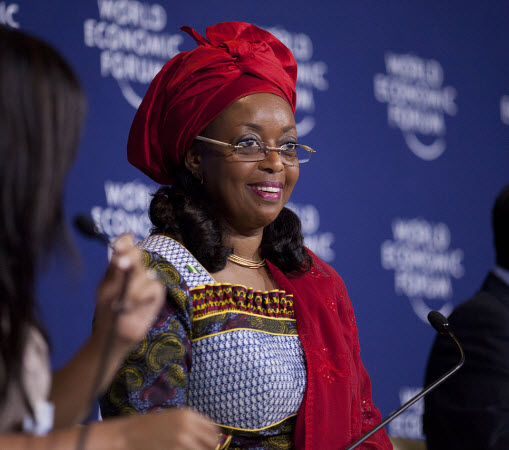There are no products in your shopping cart.
| 0 Items | £0.00 |


NIGERIA'S former petroleum minister Diezani Alison-Madueke got a temporary relief in her ongoing fight against corruption charges yesterday after an Abuja high court declined to order her arrest.
Ms Alison-Madueke, who flew to the UK after her party, lost the 2015 presidential elections, is being investigated for money laundering in both the UK and Nigeria. She has repeatedly denied any wrongdoing but the former acting chairman of Nigeria’s anti-graft agency, the Economic and Financial Crimes Commission (EFCC) Ibrahim Magu, said it was determined to extradite her to Nigeria to face corruption charges.
Mr Magu even accused the UK government of shielding the former powerful minister from prosecution. Yesterday, the EFCC told a federal court in Abuja that it needed an official arrest warrant to secure her extradition but the court however, turned down the EFCC’s request
Justice Ijeoma Ojukwu, said that the commission must provide evidence to warrant the arrest, pointing out that an order of summons earlier issued by the court was not sufficient to extradite the former minister. She added: “I have carefully pursued the application of the prosecution and the earlier order of the court was made pursuant to Section 831 of Administration of Criminal Justice Act (ACJA).
“It is my view that the summons should have assisted in the extradition of the defendant by the Office of the attorney general of the federation. Today, the defendant is not in court and no reason was given. I am being informed that the defendant is believed to be in the United Kingdom.”
“The learned counsel also informed the court that the extradition process has failed as a result of the absence of the warrant of arrest but if that is the case, the learned counsel shall file an affidavit to that effect supported by evidence from the Office of the Attorney General of the Federation. I hereby give you time to put your house in order."
In response, EFCC counsel, Farok Abdullah, told the court that the agency had initially complied with the court orders. He added that the agency is working with the attorney-general to contact any country the defendant may be residing with the sole purpose of extraditing her in line with the Extradition Act and General Convention of Nations.
Mr Abdullah also said the initial summon had not materialised, so the need for an arrest warrant is urgent. Justice Ojukwu then adjourned the matter to December 3, for report and arraignment of the defendant.